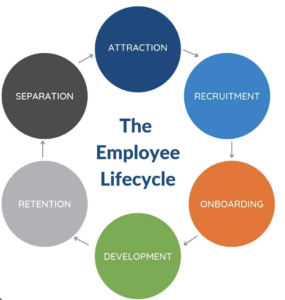Successful recruitment of the right talent is essential for any organisation. A great hire can drive success, enhance team dynamics, and foster a positive work culture. However, achieving this requires a structured approach. Here’s a concise guide to help you navigate each stage of the recruitment process.
Preparation
The first step is defining the role. Start by clarifying the responsibilities, required skills and experience:
- What tasks will the hire perform?
- What are the must-have skills, experience and knowledge?
- Are there certifications or technical proficiencies needed?
- What transferable skills (e.g., communication, organisation) are essential?
Once you’ve identified these, craft a clear job description and advertisement that sets realistic expectations. Be transparent about both the job’s challenges and growth opportunities.
Successful recruitment doesn’t happen quickly, so set a realistic timeline and allocate a budget for advertising or third-party agencies. Clearly state the application deadline and the required materials (e.g., CV and cover letter).
Selecting Applicants for Interview
After receiving applications, review each one to ensure candidates meet the role’s basic criteria. Focus on:
- Relevant experience and qualifications
- Demonstrated interest in the industry or company
- Strong communication skills
Also consider transferable skills like adaptability, teamwork, and leadership. Once you’ve shortlisted candidates, conduct a phone or video screening to:
- Verify qualifications and availability
- Assess communication style and personality
- Gauge interest and motivation for the role
Ask open questions about their reasons for applying, their previous experience, and their salary expectations to filter out candidates who may not be a good fit for the role on offer.
Conducting Successful Interviews
The interview is your opportunity to dig deeper into a candidate’s experience, skills, knowledge and cultural fit. If possible, have two interviewers for a broader perspective. Ensure one person takes notes while the other engages in the conversation. This ensures consistency and avoids bias and is more likely to result in a successful recruitment process.
A structured interview process, where all candidates are asked the same questions, ensures fairness. Focus on key areas, for example:
- Technical Skills: Ask candidates to discuss their experience with relevant tools or processes.
- Problem-Solving: Explore past challenges they’ve overcome.
- Behavioural Questions: Use the STAR method (Situation, Task, Action, Result) to understand how they’ve handled specific scenarios.
You should also assess their teamwork and adaptability with questions like:
- Tell me about a time you had to collaborate on a project.
- How do you handle conflict at work?
- What type of work culture do you thrive in?
Finally, gauge their enthusiasm for the role and the company. Ask if they have questions about the team or the company’s mission. A candidate who shows interest and curiosity is more likely to engage long-term.
Post-Interview
After completing interviews, take time to review your notes and discuss the candidates with your co-interviewer. Consider:
- Does the candidate have the technical skills required?
- How well did they answer situational and behavioural questions?
- Are they likely to be a good team fit?
Once you’ve made a decision, promptly extend an offer to your chosen candidate. Confirm details such as the job title, salary, benefits, and any key terms. Be clear about the timeline for their response and express excitement about them joining the team.
Send a formal offer letter afterward, and be open to negotiations if needed.
For unsuccessful candidates, communicate promptly. Send a polite email to those you didn’t interview or who weren’t selected after the interview. Thank them for their time and, if possible, provide constructive feedback. This transparency helps maintain a positive employer brand and prevents ‘ghosting,’ which can damage your reputation.
Onboarding
Once the candidate accepts the offer, set up the necessary paperwork, work equipment, and onboarding materials. A well-organised first week is crucial for setting the right tone. Introduce the new hire to colleagues and managers, and provide key information about the company’s vision, values, and processes. A strong onboarding process ensures that new employees feel welcomed and ready to succeed.
Conclusion
Effective recruitment is an investment in your company’s future. By carefully preparing, selecting the right candidates, conducting thorough interviews, and communicating openly, you’ll build a team that drives success. Following these steps ensures a streamlined, respectful, efficient and successful recruitment process, helping you attract and retain top talent. If you need any advice about recruiting in your organisation, get in touch.


Recent Comments